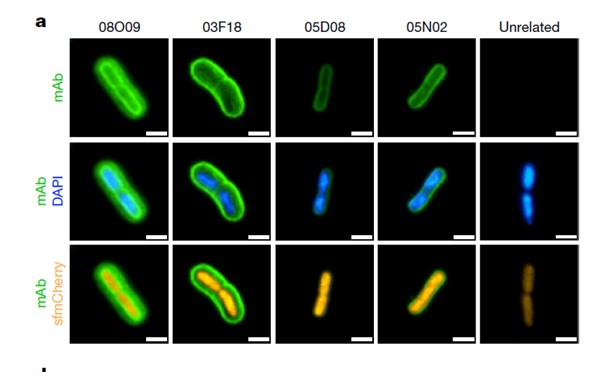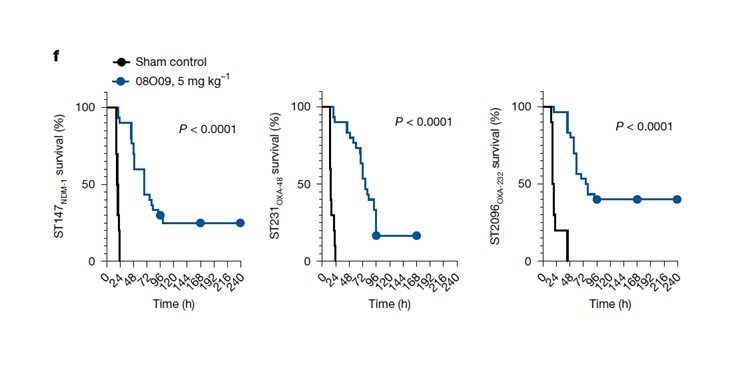The fight against antimicrobial resistance reaches a major milestone with the development of human monoclonal antibodies capable of neutralizing Klebsiella pneumoniae (Kp) ST147.
The fight against antimicrobial resistance has taken a significant step forward with the development of human monoclonal antibodies capable of neutralizing Klebsiella pneumoniae Kp ST147 — a clone composed of hypervirulent and extremely antibiotic-resistant strains that is spreading worldwide. Among K. pneumoniae strains, which are classified by the WHO as a top-priority pathogen, the ST147 clone combines resistance to almost all available antibiotics with a highly pathogenic potential, causing severe pneumonia and bacteremia with a mortality rate exceeding 30%.
In this study published in Nature, scientists isolated more than 200 monoclonal antibodies derived from memory B cells of patients who had survived an infection with Kp ST147. Twenty of these antibodies displayed particularly potent bactericidal activity. Two major classes of antibodies were identified: those targeting the KL64 polysaccharide capsule that surrounds the bacterium, and those recognizing the O-antigen of the bacterial capsule. While all of them demonstrated the ability to kill the bacterium in vitro, only the capsule-targeting antibodies proved capable of inducing in vivo protection, notably by stimulating macrophage-mediated phagocytosis and disrupting bacterial cell division.

@Roscioli et al, microscopic characterization of the binding of monclonal antibodies anti-Kp on ST147NDM1 strain in vitro. @ The authors / Nature
The most promising antibody provides effective protection in mice against fulminant bacteremia caused by Kp ST147, significantly reducing bacterial load and improving survival, both in preventive and therapeutic settings. It also proved effective against other resistant clinical strains carrying the KL64 capsule, confirming that this structure represents a prime target for combating the most dangerous forms of Klebsiella pneumoniae.

@Roscioli et al, in vivo study of 08O09 antibody efficacy against ST147NDM1 strain. @ The authors / Nature
These results pave the way for new therapeutic strategies based on monoclonal antibodies, which could be used in prophylaxis or as a complement to antibiotics. They also highlight the importance of a multifunctional approach — beyond bactericidal activity — to ensure effective protection against infections caused by multidrug-resistant bacteria.
Contact : Laurent Dortet